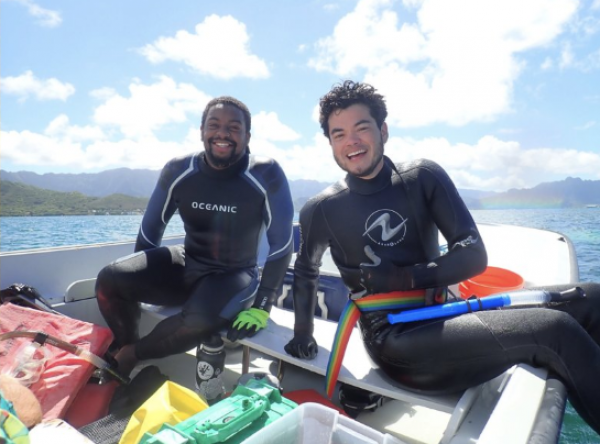A study published recently in Coral Reefs and led by University of Hawai‘i (UH) at Mānoa student researchers revealed that exposing rice coral larvae to warmer temperatures did not improve survival once the coral developed into juveniles and were exposed to heat stress.
Climate change-induced ocean warming has reshaped reef ecosystems as coral bleaching events continue to lead to mass coral die-offs globally. Coral restoration efforts in Hawai‘i are vast and include selectively breeding more resilient coral, active management of vulnerable areas and outplanting coral reared in a lab.
Shayle Matsuda and Ariana Huffmyer, marine biology graduate students in the UH Mānoa School of Ocean and Earth Science and Technology (SOEST), were on a mission to optimize efforts to restore corals. While at the Inclusive Science Communication Symposium, Matsuda met Gyasi Alexander, undergraduate student at the University of Rhode Island, and invited him to participate in a summer internship at the Hawai‘i Institute of Marine Biology (HIMB) in SOEST.
Read more at University of Hawaii at Manoa
Image: Gyasi Alexander (left) and Shayle Matsuda (Credit: University of Hawaii at Manoa)


